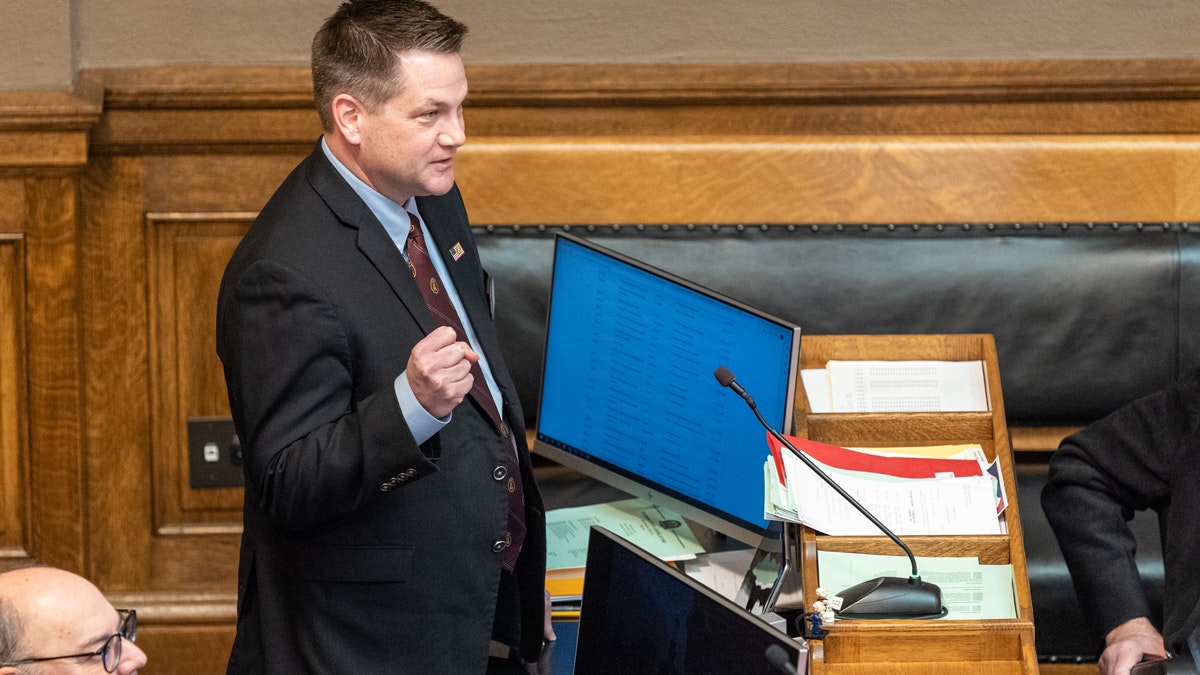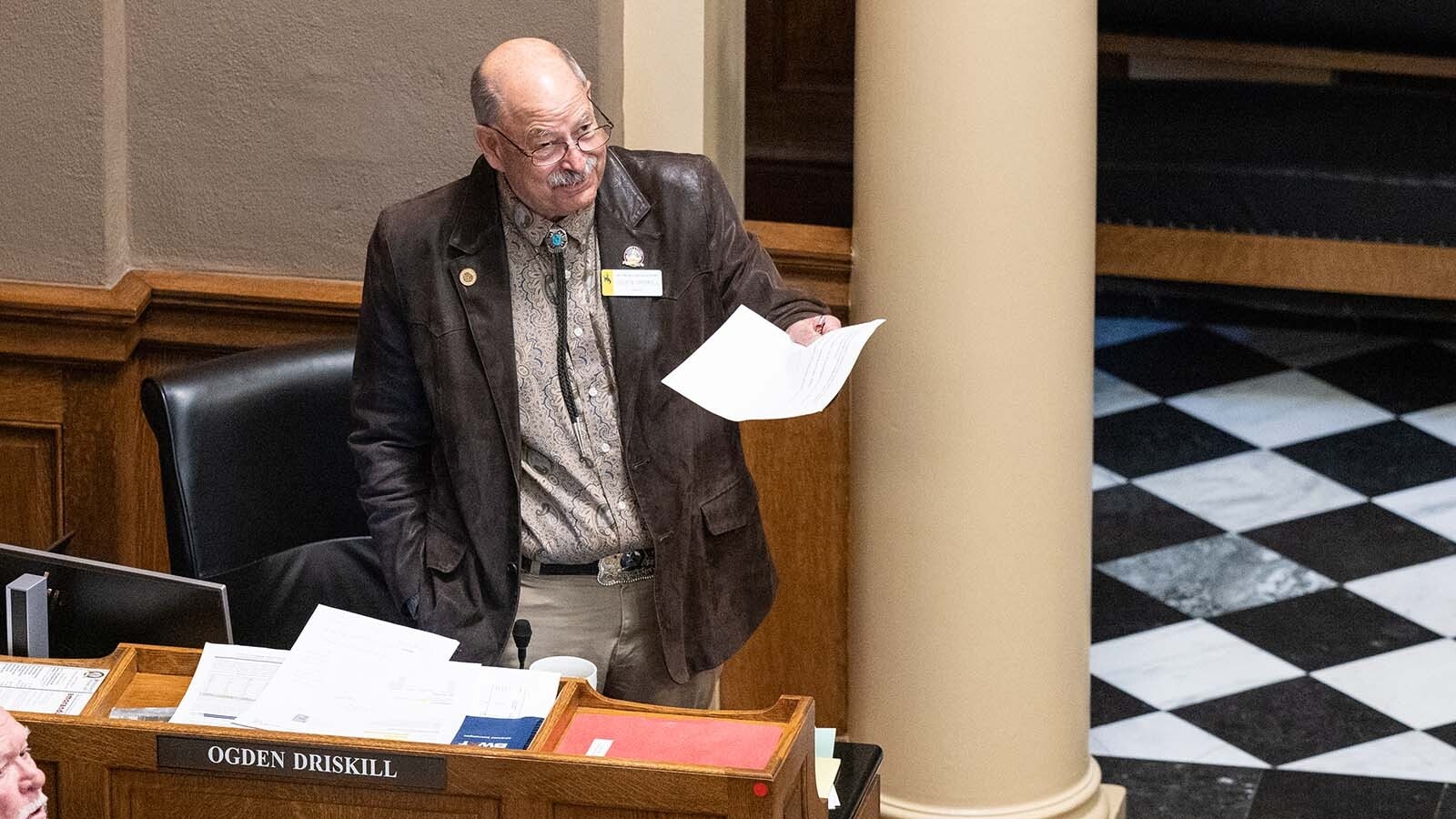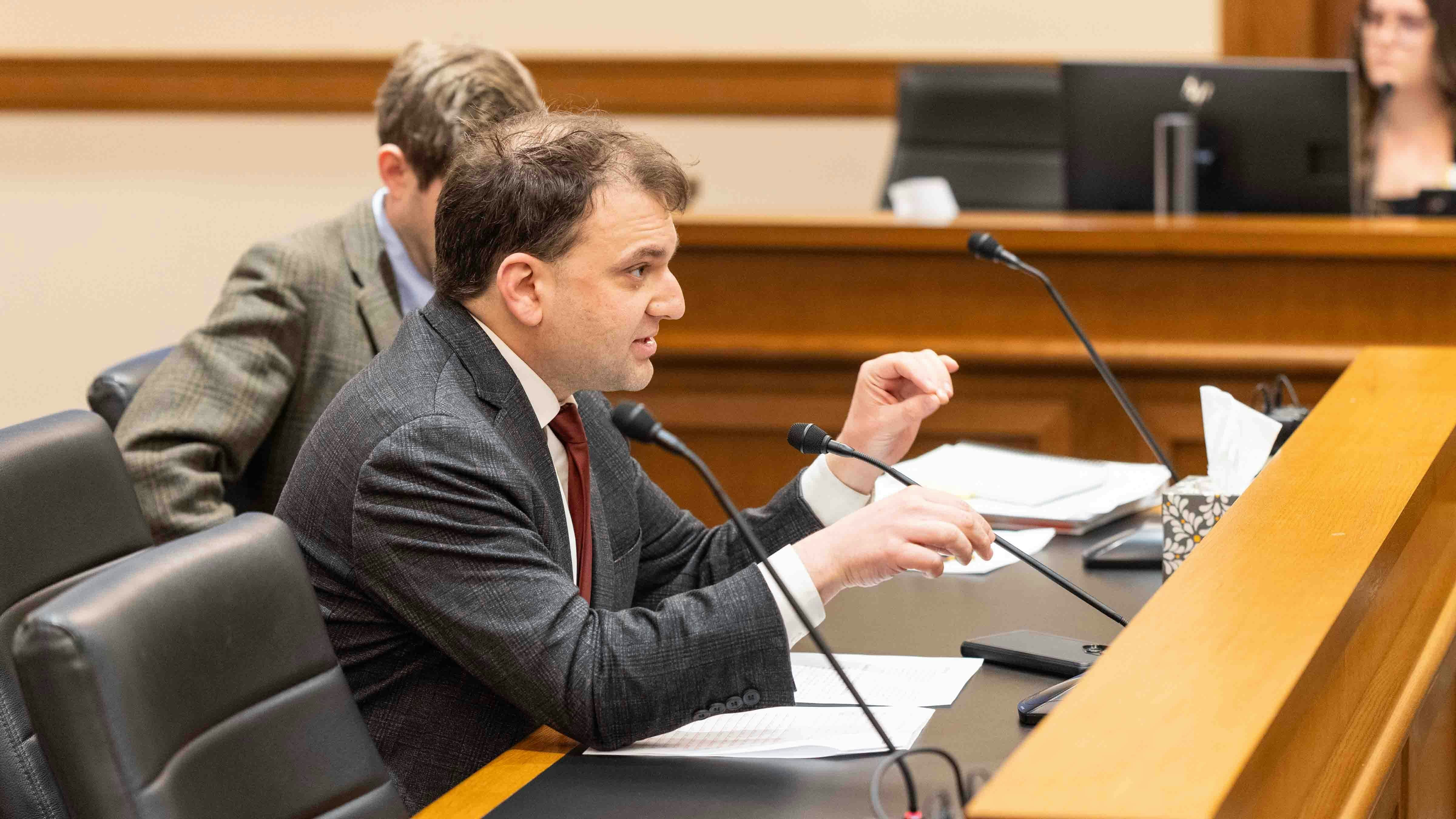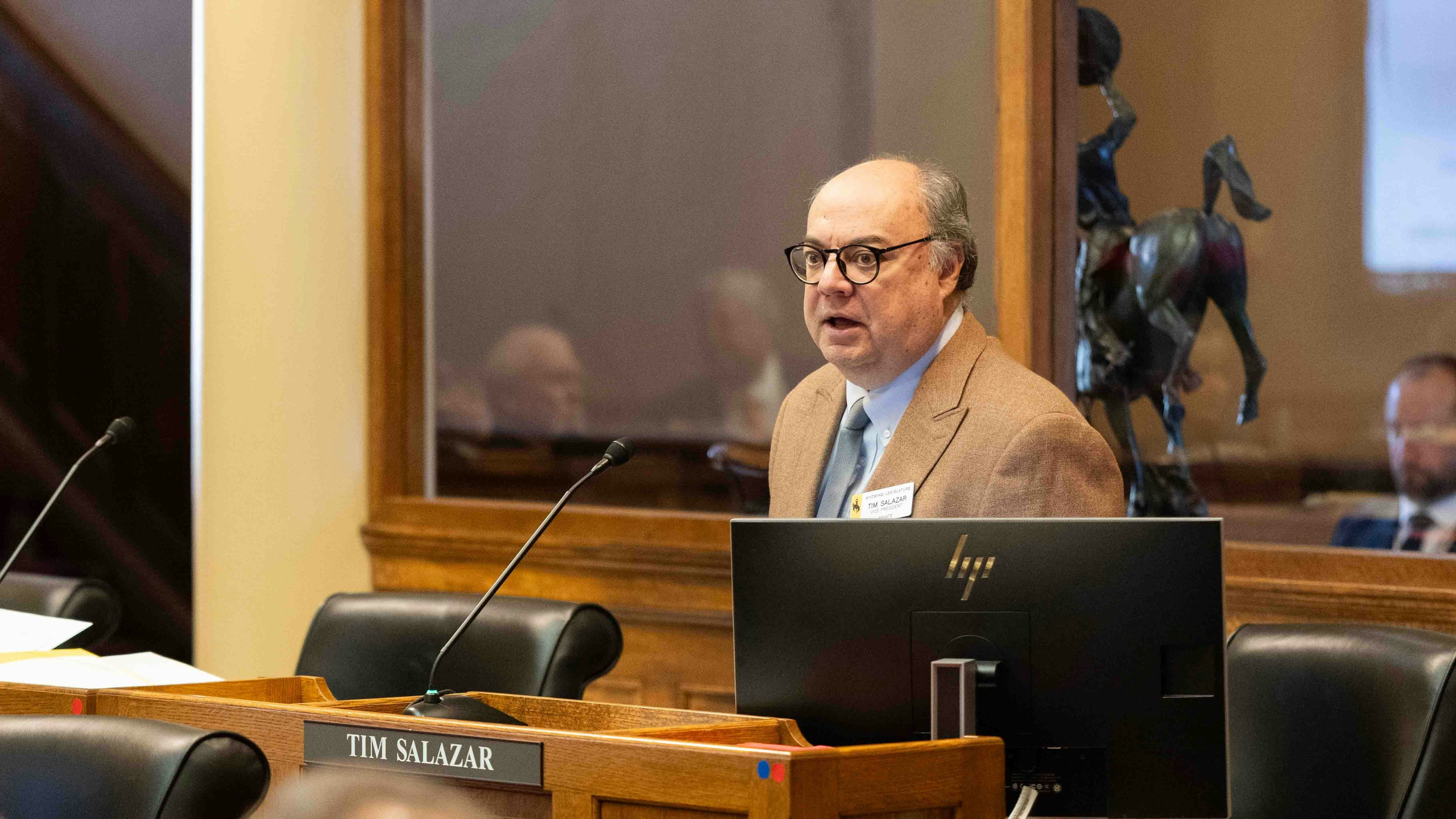The Wyoming Freedom Caucus is upset with a legislative technique used to avoid having to make many amendments to a bill.
On Thursday, the Caucus released a press release condemning the actions taken by two separate State House committees to adopt substitute bills instead of making amendments to already existing legislation.
“In a seemingly coordinated effort to thwart the legislative process and the will of the people of Wyoming, several important pieces of legislation have been upended by “substitute” bills at the last minute- without notice to the sponsor or, more importantly, to the public,” the press release states.
On Tuesday, the House Appropriations Committee spent more than two hours debating Senate File 159, “Stop ESG-Eliminate economic boycott act.” According to the Freedom Caucus, “At the eleventh hour, committee leadership revealed the existence” of the substitute bill.
This substitute bill had the same title, sponsor and co-sponsors, but was narrowed down and made significantly less committed than the original version of SF 159 brought by Sen. Bo Biteman, R-Ranchester.
Biteman’s version of SF 159 would have prevented all government parties in Wyoming from entering into state contracts to certify that they do not engage in boycotting or discrimination that includes environmental, social, and corporate governance credit scores.
“They gutted it,” Biteman told Cowboy State Daily. “They killed the bill with a public execution. It was humiliating.”
A similar substitution was made on Biteman’s Senate File 172, another ESG-boycott bill. No amendments were made to either of the substitute bills.
“I just say shame on you,” he told the committee. “Just vote it up or vote it down but (to) do this after hearing all the testimony and pull this on a fellow legislator, it’s not OK and it’s not how we do business around here.”
Rep. Clark Stith, R-Rock Springs, a member of the Appropriations Committee, said although he and his fellow members agreed with the overall intent of the bill, Biteman’s version was far too broad and left too many unanswered fiscal questions.
“It would have prevented municipalities, counties and state agencies from dealing with any company that has an ESG policy,” Stith said, “which would mean that the way it was written, you couldn’t use a product or service from Google, Facebook, Apple, IBM.
“We need to live in the real world too and not cut off our nose to spite our face.”
But there was an escape clause written in the original version of the bill allowing Wyoming to forgo the commitment if necessary if no alternatives are available. Biteman said Texas passed a similar law two years ago, and only had to divest from 17 companies as a result.
Senate President Ogden Driskill, R-Devils Tower, said Biteman’s ESG bills didn’t get a “real honest vetting” out of the Senate Revenue Committee, which Biteman is the chairman of.
“The truth is, when you bring in our financial people, there’s some real holes in those bills that potentially are dangerous to the State of Wyoming,” he said.
Speaker of the House Rep. Albert Sommers, R-Pinedale, believes the upcoming interim session would be the most effective venue for the ESG bills, where more time can be spent finding a balance between making a strong statement and not taking an action that hurts many industries and residents of Wyoming.
Peabody Coal, for instance, has an entire section of its website dedicated to ESG. Sommers said one of the biggest gas companies in his Sublette County is very involved in ESG.
Stith said the ESG topic will continue to be discussed during the upcoming interim session.
Both Sommers and Driskill stand by the practice of using substitute bills, finding it a more effective technique than drowning a bill in separate amendments or killing the bill entirely.
“Substitute bills are amendments,” Sommers said. “The reason you create a substitute bill is so you can more easily understand how the amendments fit in the bill.”
Not Told
One of the chief complaints brought by the Freedom Caucus was that Biteman wasn’t informed about the substitute bill before it was presented.
“Rather than killing the bill the old- fashioned way, committee leadership engaged in unprecedented levels of gamesmanship and blatant incivility,” the press release said.
Biteman also told Cowboy State Daily he wasn’t given a heads up that discussion had started on his bill on Tuesday, putting him in an unprepared position once entering the room to testify on his bill.
“I tried to present it as best as I could but it was clear they had already made up their minds,” he said. “We should be better than that.”
Biteman said he believes acts like these could set a bad precedent for the Legislature.
Stith said although it’s preferable for bill sponsors to know about substitute bills, this can’t always be guaranteed due to the hustle and bustle of the legislative session.
“I think it was certainly foreseeable from the Senate side that the House might have amendments,” he said. “I think both parties have some obligation to try and work things out amicably if they can.”
Sommers said a bill sponsor should be informed that their bill is being significantly changed with a substitute.
“It’s good decorum to do that,” he said.
But Sommers added he hasn’t always given bill sponsors a heads up about substitutions, such as on Feb. 6 with a change he brought to a bill to repeal gun free zones in the Appropriations Committee.
“Yes, the best decorum is make sure the person knows that it’s coming up, but sometimes time doesn’t allow that,” he said. “We have X amount of time, committees are busy, and maybe things don’t get done.”
Driskill said he would like to see a future change to the rules to require that a bill sponsor be provided with a copy of a substitute bill before the start of the meeting in which it is being discussed.
Sommers said he typically sees 3-4 substitute bills per session. Rep. Steve Harshman, R-Casper, a 20-year veteran of the House, says he hasn’t seen the technique being used any more than in the past.
Driskill said there are certain members who want their bill to pass into law with little or no changes made to it throughout the legislative process.
“The fact of the matter is on almost any controversial bill, they go out the way they go in,” he said. “Someone always changes the bill and you may not think it’s helpful, but others do.”
Driskill mentioned the “Life is a Human Right Act.” He said that its sponsors Reps. Rachel Rodriguez-Williams, R-Cody, and Chip Neiman, R-Hulett, didn’t want to compromise initially, but gave way to a few exemptions and now the bill is moving forward.
“If they had not come talk to me, that bill would’ve stayed in the drawer,” Driskill said.
Also, even if a bill is substituted at some point during the committee or floor process, this change can still be revoked during a joint conference committee before a bill heads to the governor’s desk.
“Then it’s up to you whether you kill your own bill or you take something,” Driskill said.
But it’s also up to the Senate President and Speaker whether to bring a bill to a conference committee.
“I think in general; we all agree that we need to try to find that common ground,” Sommers said. “But people need to recognize, your tone, you get nasty enough that people come to me and go, ‘should you really appoint a conference committee?'”
Other ‘Injustices‘
The Freedom Caucus also complained about a few other bills that were replaced with substitutes. The House Revenue Committee on Tuesday presented a substitute for Senate File 151, which would have prohibited specified actions by pharmacy benefit managers and allowed individuals to choose in network retail pharmacies under certain circumstances.
Although the Freedom Caucus claimed this bill was presented “at the last minute,” Rep. Dan Zwonitzer, R-Cheyenne, a member of the committee, said it was actually the version of the bill that had been discussed during the interim session last summer.
Sen. Lynn Hutchings, R-Cheyenne, expressed great displeasure with the final version of this bill that was passed, saying she was ashamed to be a legislator.
“I have never seen anything like this in my life,” said Hutchings, borrowing a microphone after the committee had closed public testimony and advanced her bill unanimously – with the changes. “Today is one day out of 13 years of being involved with the Legislature that I’m ashamed to be a legislator.”
Harshman rebuked her for breaking the meeting decorum.
Because she sponsored the original version of the bill, Hutchings is still the lead sponsor on the substitute.
Driskill said he told Hutchings after the incident, “don’t kill your bills goofing around,” promising that he would move her bill to a conference committee.
“That’s what we do,” Harshman said. “We amend each other’s bills but that’s certainly not the end of the process.”





